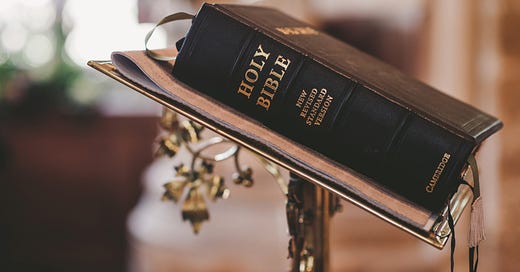Following upon the last post, let's walk through another contrast between psyche and pneuma in 1 Corinthians.
In 1 Corinthians 15 Paul discusses the nature of the resurrected body. In that discussion he makes a contrast between psyche and pneuma. And the contrast he makes is the same one we've been tracing over the last two posts. Specifically, psyche--our soulish self--cannot inherit the kingdom of heaven because psyche, our soul, is connected to our physical, biological, animal natures. Pneuma, however, being properly spiritual, can enter heaven.
Here's 1 Corinthians 15.42-49 from the ESV translation:
So is it with the resurrection of the dead. What is sown is perishable; what is raised is imperishable. It is sown in dishonor; it is raised in glory. It is sown in weakness; it is raised in power. It is sown a natural body; it is raised a spiritual body. If there is a natural body, there is also a spiritual body. Thus it is written, “The first man Adam became a living being”; the last Adam became a life-giving spirit. But it is not the spiritual that is first but the natural, and then the spiritual. The first man was from the earth, a man of dust; the second man is from heaven. As was the man of dust, so also are those who are of the dust, and as is the man of heaven, so also are those who are of heaven. Just as we have borne the image of the man of dust, we shall also bear the image of the man of heaven.
As we noted in the last post, English readers of the Bible have never seen the contrast between psyche/soul and pneuma/spirit at work in this text. As before, let me reshare the text, making the contrast clear:
So is it with the resurrection of the dead. What is sown is perishable; what is raised is imperishable. It is sown in dishonor; it is raised in glory. It is sown in weakness; it is raised in power. It is sown a psychical body; it is raised a pneumatical body. If there is a psychical body, there is also a pneumatical body. Thus it is written, “The first man Adam became a living psyche”; the last Adam became a life-giving pneuma. But it is not the pneumatical that is first but the psychical, and then the pneumatical. The first man was from the earth, a man of dust; the second man is from heaven. As was the man of dust, so also are those who are of the dust, and as is the man of heaven, so also are those who are of heaven. Just as we have borne the image of the man of dust, we shall also bear the image of the man of heaven.
This text makes the New Testament imagination absolutely clear. The soul (psyche) is different from pneuma. Where pneuma is associated with the spiritual and the heavenly, the soul is associated with the earth and dust. "Soulishness" is more closely associated with biology and natural animal life. Souls are weak, natural, and perishable. Souls die. Pneuma, by contrast, is heavenly, imperishable, and powerful. Spirit does not die.
When we imagine the "soul" we think of ghosts. When Paul imagined the "soul" he thought of dust.




Very interesting remembering sayings such as “he is a dear old soul” which implies organic substance. But, in church and Sunday School, throughout my life, I was taught that my soul was what would get to Heaven. Now I infer that when my body dies, my soul accompanies it to dust and, hopefully, my spirit ends up in Heaven.
"Once upon a time, in a not-so-far-away land, there was a kingdom of acorns, nestled at the foot of a grand old oak tree. Since the citizens of this kingdom were modern, fully Westernized acorns, they went about their business with purposeful energy; and since they were midlife, ambitious acorns, they engaged in a lot of self-help courses. There were seminars called 'Getting All You Can out of Your Shell.' There were woundedness and recovery groups for acorns who had been bruised in their original fall from the tree. There were spas for oiling and polishing those shells and various acorn-o-pathic therapies to enhance longevity and well-being.
One day in the midst of this kingdom there suddenly appeared a knotty little stranger, apparently dropped 'out of the blue' by a passing bird. He was capless and dirty, making an immediate negative impression on his fellow acorns. And crouched beneath the oak tree, he stammered out a wild tale. Pointing upward at the tree, he said, 'We…are…that!'
Delusional thinking, obviously, the other acorns concluded, but one of them continued to engage him in conversation: 'So tell us, how would we become that tree?' 'Well,” he said, pointing downward, 'it has something to do with going into the ground …and cracking open the shell.'
'Insane,' they responded. 'Totally morbid! Why, then we wouldn’t be acorns anymore!'"